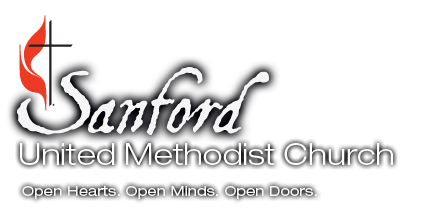T is for Tebowing
Posted in Pastor Cutting's Blog on 16. Jan, 2012
T is for Tebowing
If anyone is ashamed of me and my words, the Son of Man will be ashamed of him when he comes in his glory and in the glory of the Father and of the holy angels ( luke 9:26)
“With all due respect we don’t need God on our sidelines … Once again God had to save Tim Tebow and the Denver Broncos. He couldn’t even give them two drives? Seven to three?” These are the words of Terrel Suggs as he expressed his frustrations with Tim Tebow. I am not a football fan. I find it hard to devote so many hours to watch a single game. But Suggs’ remarks got my attention for they reflect not only on the religious divide in our society, but also leads me to ask whether any of us need God on the sidelines of life.
Tim Tebow’s public acknowledgement of his Christian faith is admired by some and resented by others. A few weeks go, I asked my thirteen year old grandson, Anthony ( a devotee of the game and a player) for his thoughts about Tebow. In addition to other things, I learnt that among our youth there is a word for what Tebow does, it is called Tebowing. I googled this word and got about 1.8 million hits. One site (http://tebowing.com/) showed pictures of various people Tebowing. The definition of Tebowing is: “To start praying, even if everyone else around you is doing something completely different.”
In December of 2011, The Global Language Monitor announced that it acknowledges that the word “Tebowing” has officially entered the English language. ( that means that one day when you type Tebowing it would not be underline in red as a misspelled word).
Tebow is not the only professional athlete that makes a public display of his faith. On the other side of the Atlantic we find Kaká, the fútbol( soccer) player that Pelé described as “the outstanding talent of the moment.” Time Magazine names Kaká, among the 100 most influential people in the world. In spite of these honors, what matters to him more than anything else is his relationship to the Lord. Kaká’s is known for taking off his team jersey after scoring a goal to revel the bold words on his undershirt: ”I belong to Jesus” while he kneels and raises his hands to the Lord in thanksgiving.
In preparing this blog I read many responses to Suggs’ remarks. One Raven fan said: “Even with the Ravens being my team, I do have a love for a young Christian brother who exalts the Lord and has made such a strong stand on behalf of Jesus Christ. No team supersedes my love for the Christian brethren.”
One player may be angry with another or one may take issue with the religion of another. But to publicly say you do not need God on your sidelines is to display a level of arrogance and pride that even the prince of darkness envies. Where does one find the confidence that causes him to say: “I don’t need God?”
Suggs is comfortable speaking this way not only because he has first amendment rights. He lives in a society that increasingly makes people feel comfortable minimizing the importance of God in their lives. Christian bashing is an acceptable form of bigotry in America. It is alive and well and growing more intense by the day. People take pleasure in tearing down religion and moral values. There is no surprise that a Saturday Night Live humorist would refer to Patriots quarterback Tom Brady as the “nephew of God.” The world loves the kind of Christian who keeps his faith to himself. The one tolerance we can’t afford is tolerance for those, like Tim Tebow, who proclaim a saving trust in Jesus Christ.
Suggs’ statement should cause him and all of us to take a fresh look at our beliefs and attitudes toward God. One person asked: Doesn’t Suggs realize that even the honor of being considered for “Defensive Player of theYear,” did not come by his own strength. Really, what does he have that God didn’t give him? If we start with the fact that God gave him life, he is already indebted to Him.
I listened to Suggs’ statement on line. He also said: “… we give it up to God (just for) safety and health, but we’re gonna go out there and win that game.” This is also revealing. He looks to God for protection and good health. But when it comes to the game itself, he and his team can manage on their own. They can win without God. His offensive statement has nothing to do with Tim Tebow; it’s all about God. He seems to be saying: We know when we need God and when we do not need God. Those who do not want God on the sidelines do not want him at the center of their lives either.
Someone said that Terrel Suggs nickname is “T-Sizzle.” and pointed out that there’s a chance that, at some point in the future, it will refer to the fire and brimstone in which his mortal soul may be engulfed. Clearly that is saying too much and going too far. Those we see Tebowing in life would pray for Suggs’ welfare. It would be good for Suggs and all who have a prideful attitude to humble themselves before the almighty.
I do not know where God stands on the game of football. If Suggs’ words were meant as a joke, those who take God seriously did not get it. This much is certain, God is here on the battle field of life to help us win against spiritual wickedness in high places. The sidelines is the place to which a player on the field look for directions, especially when the game is difficult. If God is not on our sidelines, then who is? To whom do we turn for guidance? If God does not help us win, who does? If God is not on our sidelines, who receives our praise and thanksgiving for life’s blessings. Believers affirm: My help comes from the Lord who made heaven and earth.
May we know that our God is not confined to the sidelines, somehow at a distance and shouting his advice to us above the noise of the crowd. Our God is above us, around us, and on the playing field with us. We may look to the sidelines, We may look up, best of all, we may look within for he is everywhere present to help us win.





